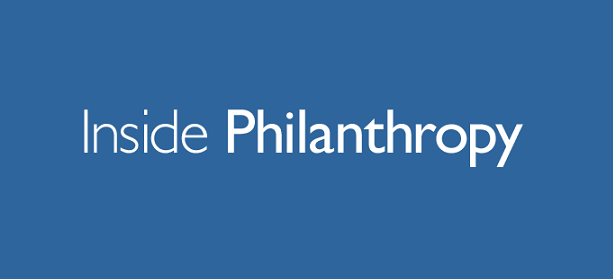If you’ve been coming to this site for a while, you’ll be familiar with Ed Scott. He’s the Silicon Valley entrepreneur who founded the Center for Global Development, bankrolling its early years, and has also given millions of dollars to support other advocacy groups working to help the poorest people on the planet.
We’ve called Scott “Silicon Valley’s Most Effective Global Giver” and named him one of the 12 most generous tech philanthropists.
But Scott has another passion beyond global development, one that’s deeply personal: Autism. Here, too, he’s committed both serious time and energy, approaching things differently than many funders.
Scott’s son, Reece, showed all the signs of autism as a child and couldn’t speak until he was four. Scott was devastated. He and his wife, Cheryl, worked to get Reece the best help they could, but found there was little knowledge about how to treat their son, who was eventually diagnosed with Asperger’s.
Reece would go on to graduate from Georgetown, get a master’s from the University of Oxford, and become fluent in Japanese. That progress, in the wake of a situation that seemed so bleak, is the inspiration behind Scott’s approach to giving in the autism space.
After their own struggle, Scott and Cheryl wanted to do what they could to improve the autism field, and saw an opportunity for their money to make a difference on the behavioral and treatment front, since so much autism giving is focused on brain research and otherwise trying to find a cure to this condition.
Research is important, Scott says. “If you can find a vaccine, great.” But in the meantime, our society needs better strategies to treat autistic kids, and Scott sees the goal of his giving as “Improving the life of the autistic child, and improving the life of the parents. And everyone else who deals with the autistic challenge.”
Scott lives in Florida, and he has wife worked with the Florida Institute of Technology to create the Scott Center for Autism Treatment, which formed in 2009. A former U.S. Congressman, Dave Weldon, also helped get the Center off the ground by securing government funds for its work.
A trademark of Scott’s philanthropy on global development has been his keen focus on leveraging his modest resources in the face of problems that are overwhelming in scope. In the global space, Scott focused on policy and advocacy—stretching his dollars by influencing how governments, with their vast resources, approach development.
Autism is an overwhelming problem in its own way. Some two million Americans are said to be affected by autism spectrum disorder (ASD), and over 35,000 new cases are diagnosed every year. Scott saw that in this area, as with global poverty, a direct service approach would represent a drop in the bucket, even with his large resources. “We can’t touch all these people. There are too many of them.”
So he focused on leverage, and came to believe that the best use of his money was to help train parents, teachers, and others in effective strategies for dealing with autistic children. For example, if teachers know how to handle autistic kids, those kids are less likely to be placed in segregated situations. Even something as basic as better managing tantrums is crucial because it opens up other possibilities for progress.
The Scott Center at FIT trains graduate students in psychology to work with the individuals and families coping with autism challenges. It’s also engaged in cutting-edge behavioral research on autism to find out what strategies work best and also works in a hands-on way with autistic children and their families.
Scott’s in his mid-70s now, and he recently stepped down as board chair of the Center for Global Development. His days of giving big on global poverty issues are over, and he’s involved in multiple business ventures. But he hasn’t shown any signs of pulling back from the autism giving, and the Scott Center is going strong in its fifth year, with a staff of 17.

